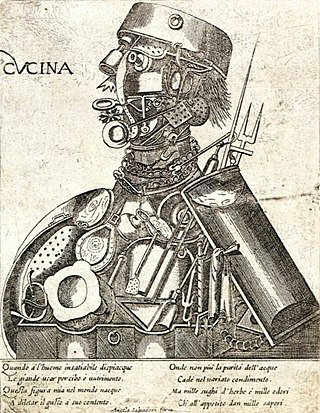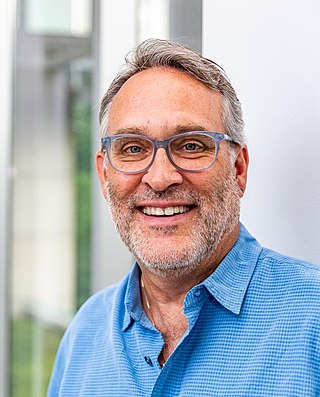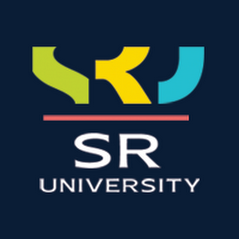Learning sciences (LS) is the critical theoretical understanding of learning, engagement in the design and implementation of learning innovations, and the improvement of instructional methodologies. LS research traditionally focuses on cognitive-psychological, social-psychological, cultural-psychological and critical theoretical foundations of human learning, as well as practical design of learning environments. Major contributing fields include cognitive science, computer science, educational psychology, anthropology, and applied linguistics. Over the past decade, LS researchers have expanded their focus to include informal learning environments, instructional methods, policy innovations, and the design of curricula.
Andrea A. diSessa is an education researcher and author of the book Turtle Geometry about Logo. He has also written highly cited research papers on the epistemology of physics, educational experimentation, and constructivist analysis of knowledge. He also created, with Hal Abelson, the Boxer Programming Environment at the Massachusetts Institute of Technology.

A Bongard problem is a kind of puzzle invented by the Soviet computer scientist Mikhail Moiseevich Bongard, probably in the mid-1960s. They were published in his 1967 book on pattern recognition. The objective is to spot the differences between the two sides. Bongard, in the introduction of the book credits the ideas in it to a group including M. N. Vaintsvaig, V. V. Maksimov, and M. S. Smirnov.
A cognitive architecture refers to both a theory about the structure of the human mind and to a computational instantiation of such a theory used in the fields of artificial intelligence (AI) and computational cognitive science. These formalized models can be used to further refine comprehensive theories of cognition and serve as the frameworks for useful artificial intelligence programs. Successful cognitive architectures include ACT-R and SOAR. The research on cognitive architectures as software instantiation of cognitive theories was initiated by Allen Newell in 1990.
This is an index of education articles.
Vasant G. Honavar is an Indian-American computer scientist, and artificial intelligence, machine learning, big data, data science, causal inference, knowledge representation, bioinformatics and health informatics researcher and professor.
An intelligent tutoring system (ITS) is a computer system that imitates human tutors and aims to provide immediate and customized instruction or feedback to learners, usually without requiring intervention from a human teacher. ITSs have the common goal of enabling learning in a meaningful and effective manner by using a variety of computing technologies. There are many examples of ITSs being used in both formal education and professional settings in which they have demonstrated their capabilities and limitations. There is a close relationship between intelligent tutoring, cognitive learning theories and design; and there is ongoing research to improve the effectiveness of ITS. An ITS typically aims to replicate the demonstrated benefits of one-to-one, personalized tutoring, in contexts where students would otherwise have access to one-to-many instruction from a single teacher, or no teacher at all. ITSs are often designed with the goal of providing access to high quality education to each and every student.

Intelligence amplification (IA) is the use of information technology in augmenting human intelligence. The idea was first proposed in the 1950s and 1960s by cybernetics and early computer pioneers.

Mark Thomas Gerard Keane is a cognitive scientist and author of several books on human cognition and artificial intelligence, including Cognitive Psychology: A Student's Handbook, Advances in the Psychology of Thinking, Novice Programming Environments, Advances in Case-Based Reasoning ., Case-Based Reasoning: Research & Development.

Computational creativity is a multidisciplinary endeavour that is located at the intersection of the fields of artificial intelligence, cognitive psychology, philosophy, and the arts.
Ashwin Ram is an Indian-American computer scientist. He was chief innovation officer at PARC from 2011 to 2016, and published books and scientific articles and helped start at least two companies.

Manuela Maria Veloso is the Head of J.P. Morgan AI Research & Herbert A. Simon University Professor Emeritus in the School of Computer Science at Carnegie Mellon University, where she was previously Head of the Machine Learning Department. She served as president of Association for the Advancement of Artificial Intelligence (AAAI) until 2014, and the co-founder and a Past President of the RoboCup Federation. She is a fellow of AAAI, Institute of Electrical and Electronics Engineers (IEEE), American Association for the Advancement of Science (AAAS), and Association for Computing Machinery (ACM). She is an international expert in artificial intelligence and robotics.
Allan M. Collins is an American cognitive scientist, Professor Emeritus of Learning Sciences at Northwestern University's School of Education and Social Policy. His research is recognized as having broad impact on the fields of cognitive psychology, artificial intelligence, and education.
John Matthew Hollerbach is a professor of computer science and research professor of mechanical engineering at the University of Utah. He is the editor of The International Journal of Robotics Research, a Senior Editor of Presence: Teleoperators & Virtual Environments, and a Governing Board member of the electronic journal Haptics-e.
Said Hadjerrouit is a professor of informatics and computer science at the University of Agder in Kristiansand, Norway. He got a doctoral degree (Dr.Ing) in 1992 in the field of medical expert systems and artificial intelligence, and a master's degree (1985) in software engineering from the Technische Universität Berlin, Germany. His teaching in Berlin focused mostly on informatics and society, philosophical and ethical issues of computing, and computers in developing countries. In 1991, he moved from Berlin to Kristiansand, Norway, and worked at the Institute of Electronic Data processing at the University of Agder. In 1994, he moved to the Institute of Mathematical Sciences at the same university, where he was appointed as an associate professor for teaching object-oriented programming, Web engineering, software development, and databases. From 2004, his work shifted to didactics of informatics and computer science education, ICT in mathematics education, ICT-enhanced learning, Web-based learning resources, social software, and Web 2.0 technology. In 2008, Hadjerrouit made a major shift in his research focus from didactics of informatics and Computer Science to mathematics education and use of digital tools in teaching and learning mathematics. He has been teaching the doctoral course “Theories in the Learning and Teaching of Mathematics” since 2014. He is also supervising two PhD students in the field of Flipped Classroom and documentational approach to mathematics education. Hadjerrouit has more than 140 publications in international journals and conference proceedings. He was awarded for Best Paper at Society for Information Technology and Teacher Education Conference in San Diego, California, United States, and IADIS e-Society conference 2012 in Berlin, Germany.
Newton Howard is a brain and cognitive scientist, the former founder and director of the MIT Mind Machine Project at the Massachusetts Institute of Technology (MIT). He is a professor of computational neurology and functional neurosurgery at Georgetown University. He was a professor of at the University of Oxford, where he directed the Oxford Computational Neuroscience Laboratory. He is also the director of MIT's Synthetic Intelligence Lab, the founder of the Center for Advanced Defense Studies and the chairman of the Brain Sciences Foundation. Professor Howard is also a senior fellow at the John Radcliffe Hospital at Oxford, a senior scientist at INSERM in Paris and a P.A.H. at the CHU Hospital in Martinique.

Bruce Martin McLaren is an American researcher, scientist and author. He is a professor at Carnegie Mellon University in the Human-Computer Interaction Institute, head of the McLearn Lab, and a former President of the International Artificial Intelligence in Education Society (2017-2019).

SR University is an Indian private university located in Hyderabad, Telangana, established in 2020 under the purview of Sri Rajeshwara Educational Society (SREC).
Thomas L. Griffiths is an Australian academic who is the Henry R. Luce Professor of Information Technology, Consciousness, and Culture at Princeton University. He studies human decision-making and its connection to problem-solving methods in computation. His book with Brian Christian, Algorithms to Live By: The Computer Science of Human Decisions, was named one of the "Best Books of 2016" by MIT Technology Review.
Generative literature is poetry or fiction that is automatically generated, often using computers. It is a genre of electronic literature, and also related to generative art.







